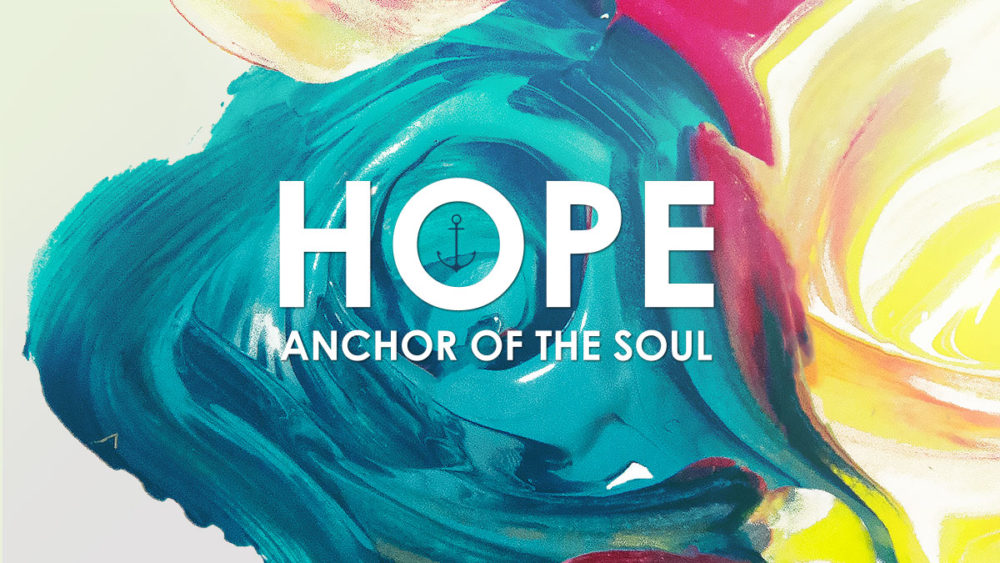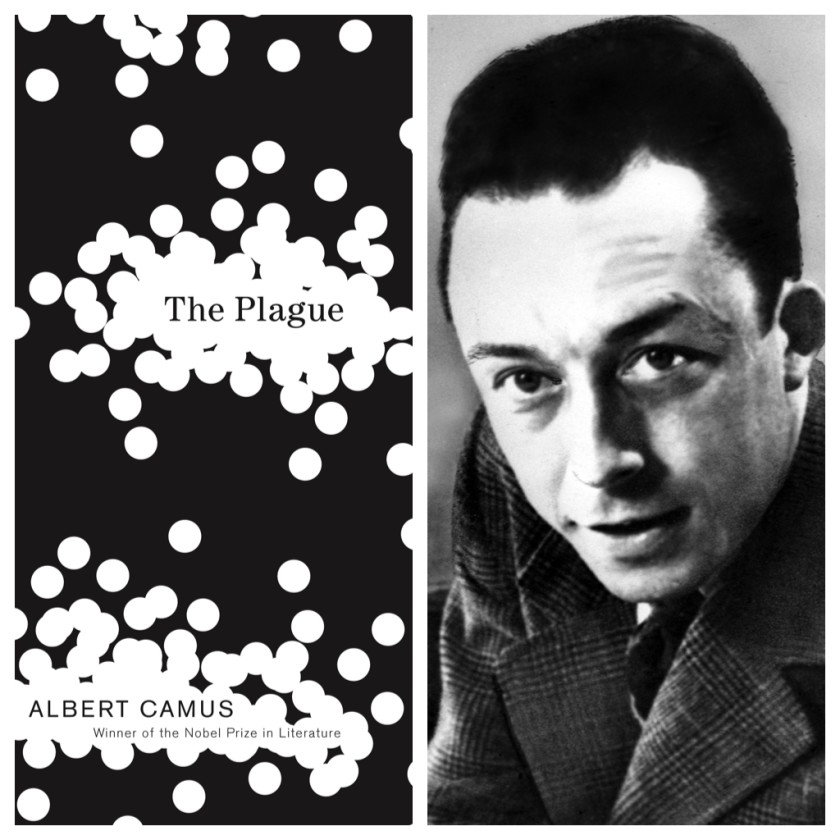Something timely and timeless to Read this Sunday: Our Ways of Dealing with Pestilence
This is a time for solidarity and hope

Photo:quickenme.com
Good morning. Perhaps you have already read this book, La peste (The Plague) or you may have not heard about it. Reading about it myself the other day, I could not believe what I was reading. The words of this visionary author, Albert Camus, writing in the 1940s and its relevance to our current global pandemic crisis is nothing but prophetic.
“There are plagues, and there are victims, and it’s the duty of good men not to join forces with the plagues.”
“They knew now that if there is one thing one can always yearn for, and sometimes attain, it is human love.”
The Irish writer Conor Cruise O’Brien has called La peste “a sermon of hope.” It’s worth revisiting that hopefulness – the spirit that prompts the Camus’s narrator to declare, famously, that plagues remind us “there are more things to admire in men than to despise.”
For Times of Extremity, Albert Camus Prescribed Modest Virtues
What Albert Camus’s “The Plague” can teach us about life in a pandemic.
‘The main thing about a pandemic like coronavirus is that it doesn’t discriminate.
Whoever you are, wherever you live, you’re vulnerable, at least in principle. While some of us may fare better because of our age or health, the microbes themselves are impartial.
It’s worth pausing to reflect on the implications of that fact. Among other things, it means we’re all in the same boat, for better or worse.’
‘Albert Camus’ The Plague: a story for our, and all, times.’

“The Plague” and author Albert Camus. Photo:(Vintage/ Everett/Shutterstock)
The Plague author Albert Camus was born in Algeria, where the novel is set.
‘In my self-isolating household in upstate New York, the pandemic has thus far produced boredom eating, boredom watching, hiking, candlelight dinners and, later in the evening, some reading out loud. We are living in the eerie, low-pressure vacuum before the storm. A friend emails from the Bay Area to say she’s baked her first loaf of bread; another writes from Australia to say that this epidemic will be “a giant mirror held up to everyone,” and that he is reading Mary Shelley’s “The Last Man.” A neighbor walking his dog halloos from across the fence. He doesn’t dare come closer, but he has something he wants to say: “Perhaps this will be a Great Reset.”
The last time the globe experienced a huge, simultaneous, nearly universal reset was immediately after World War II. In the relatively brief period of time between, say, Hiroshima and the dawn of the somnolent ’50s, as Keynesian policymakers were designing the welfare state, two writers produced two masterpieces of political introspection. In the aftermath of Trump’s victory, readers seized for obvious reasons on one of these, Orwell’s “1984.” Now, understandably, they’re reaching for the other.
Some books are so venerated, so sacralized, they are almost forbidding to the touch. But — as I have now, belatedly, discovered — there’s no substitute for finally sitting down and reading the 1947 novel “The Plague,” by Albert Camus. Its relevance lashes you across the face. In a commercial port in Algeria, a disease appears, as if from nowhere. It begins inconspicuously, with the appearance of a few disordered rats, then works its way virulently through the human population, as aided by indifference, hypocrisy, laziness. Shops close, streets empty. But the infection picks up steam, spreading according to a geometric progression, producing a steeply rising “death graph.” En masse, the city is quarantined, but inside its walls there is a shortage of medical staff and lifesaving equipment and, yes, a controversy over whether masks are useless…’-Albert Camus’ ‘The Plague’ and our own Great Reset
Author’s daughter explains 1947’s book’s renewed appeal during coronavirus lockdown
Albert Camus’ ‘The Plague’ and our own Great Reset
“Perhaps with the lockdown we will have some time to reflect about what is real, what is important, and become more human.”
“In 1946, when Papa wrote the book, wealth was measured by different standards to today, when people are simply chasing after gold and human beings are regarded as free market goods to be bought and sold. We jump from one thing to another. Everyone thinks they are right and forgets what life is about, that there are doubts.”
“What’s true of all the evils in the world is true of plague as well. It helps men to rise above themselves.”
‘A plague is spreading. People are dying. Everyone is ordered to quarantine at home as the local doctor works around the clock to save victims. There are acts of heroism and acts of shame; there are those who think only of themselves, and those who are engaged for the greater good. The human condition is absurd and precarious.
That is the situation in La Peste (The Plague), Albert Camus’s classic novel published in 1947, which is now attracting new generations of readers.
Camus’s daughter Catherine was 14 when she read La Peste, two months before her father died in a car accident. “The message of La Peste rings true today as it did back then, as it will in the future,” she told the Guardian. “I’m glad to learn people are reading it again. If there’s a passage in the book that speaks to readers, that gives them hope, this is what is important.”
Camus, 74, was speaking from her home at Lourmarin in the Lubéron, where she has lived for 30 years. The house, bought by her father from the money he made on being awarded the Nobel prize for literature in 1957, is in rue Albert-Camus, a stone’s throw from the cemetery where the writer is buried.
Albert Camus, who was born in Algeria, where La Peste is set, and died in 1960, aged 46, while being driven to his Provençal home by his publisher, Michel Gallimard. The car, a powerful Facel-Vega, veered off the road and hit two trees. Camus was killed instantly.
The cause of the accident, on a long stretch of straight, wide road, remains a mystery and there have been numerous theories. In his book The Death of Camus, the Italian author and academic Giovanni Catelli suggests the author may have been killed by the KGB after expressing his opposition to the Soviet regime.
Catherine and her twin brother, Jean, whom their father fondly nicknamed “Plague” and “Cholera”, were not directly told of his death and were kept away from the funeral.
For 40 years, Catherine Camus has managed her father’s literary legacy, controlling publication rights, publishing his letters and keeping the flame of her adored “Papa” alight while remaining in the shadows herself because, she said, “I prefer it there”.
“Perhaps with the lockdown we will have some time to reflect about what is real, what is important, and become more human,” she said.
“In 1946, when Papa wrote the book, wealth was measured by different standards to today, when people are simply chasing after gold and human beings are regarded as free market goods to be bought and sold. We jump from one thing to another. Everyone thinks they are right and forgets what life is about, that there are doubts.”
...La Peste begins one spring day when Bernard Rieux, a doctor from the Algerian city of Oran, finds a dead rat on his doorstep. Suddenly he sees rats, dead and alive, everywhere. When local people begin dying of the plague, the authorities order everyone to stay home.
Through his characters, Camus examines how people respond as individuals – and as part of a collective – to suffering and death. Whether it is a solitary experience or a show of social solidarity, nobody is indifferent.
The novel is set in 1940 but is loosely based on a cholera epidemic in 1849, after the French colonisation of Algeria.
Albert Camus said the novel could be read on several levels and was also an allegory of the French resistance to the pestilence of Nazism and the German occupation during the second world war.
“The inhabitants, finally freed, would never forget the difficult period that made them face the absurdness of their existence and the precariousness of the human condition,” he wrote. “What’s true of all the evils in the world is true of plague as well. It helps men to rise above themselves,”
Catherine Camus said that from the many letters she receives about her father’s work, she had concluded that the enduring fascination with them was because “the man is in the books … he asked the same questions everyone asks and addressed the same suffering and pain and concerns everyone has”.
She believes the message of La Peste is that we are responsible for our actions. “We are not responsible for coronavirus but we can be responsible in the way we respond to it,” she said.
“Papa tried to speak for those who had no words of their own. He was physically determined to challenge lies; he believed that when you are a writer you cannot lie.
“It is wonderful that a new generation is discovering Camus, and I hope that in the silence of the confinement his words will have an echo.”
Catherine Camus said people had been calling her to say she must be happy to be receiving the extra money, confirming her dismal view that we all have become money-obsessed “robots”.
“Of course the money is helpful, but it’s not what is the most important. Papa doesn’t need help or promotion to sell his books, his work speaks for itself. He wrote what he had to say and he did it at the highest level,” she said.
*This article by Kim Willsher was first published in The Guardian on Saturday 28 March 2020.
Staying positive and hopeful during the coronavirus crisis

Sunrise Oxwich Bay, South Wales.- Photo:Anne Mofid
The Anxious and Troubled Times: ‘Now we need books more than ever’
